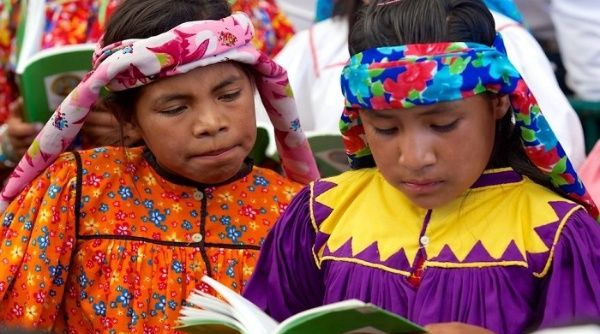
"Language, history, culture and identity together with territory constitute nations," said Elisa Loncon. | Photo: Juárez Hoy
Paris, January 8 (RHC)-- The United Nations is promoting the International Decade of the World's Indigenous Languages, which begins in 2022, and its main goal is to call the world's attention to the current situation of indigenous languages.
"Mobilizing stakeholders and resources for their preservation, revitalization and promotion", is one of the fundamental challenges highlighted by the organization, where the United Nations Educational, Scientific and Cultural Organization (UNESCO) will be a key promoter.
The fundamental objective of promoting this date is to "integrate aspects of linguistic diversity and multilingualism into sustainable development efforts". It provides a unique opportunity to collaborate in the areas of policy development".
This decade will make it possible, according to UNESCO, "to take the necessary measures for the use, preservation, revitalization and promotion of indigenous languages throughout the world."
"In line with the objectives of the International Decade, the IDIL 2022-2032 online platform aims to create a global community for indigenous languages, facilitate the exchange of information on activities and events worldwide." They also call for "promoting relevant resources and tools, reporting and monitoring progress, and creating new opportunities for exchange and dialogue among a broad network of stakeholders.
For its part, the National Institute of Indigenous Peoples (INPI) of Mexico affirmed that as part of the date agreed upon by the UN, it will implement the integration of projects for the revitalization, strengthening, development and promotion of each of the indigenous languages spoken in the national territory.
"The Government of Mexico and the INPI, as the governing body for public programs and policies aimed at indigenous and Afro-Mexican peoples, will have to take actions and decisions, because it is not only a legal obligation, but an ethical commitment, that we continue working for the preservation of the more than 68 indigenous languages that exist in Mexico," said the director of the INPI Adelfo Regino Montes.
The Mapuche linguist Elisa Loncon Antileo pointed out that "the truth is that the colonial heritage has not been as good as school textbooks teach it, because in the name of the single nation the pre-existing nations were marginalized from the policies and possibilities of thinking about their future, and this has deeply damaged the coexistence of the States with the indigenous peoples, leading them to the disappearance of their culture, language, memory and their condition as original nations."
"Language, history, culture and identity together with territory constitute nations, in addition to the right to autonomy and self-determination; the loss of any of these has repercussions on the collective conscience of a nation," added the academic.

